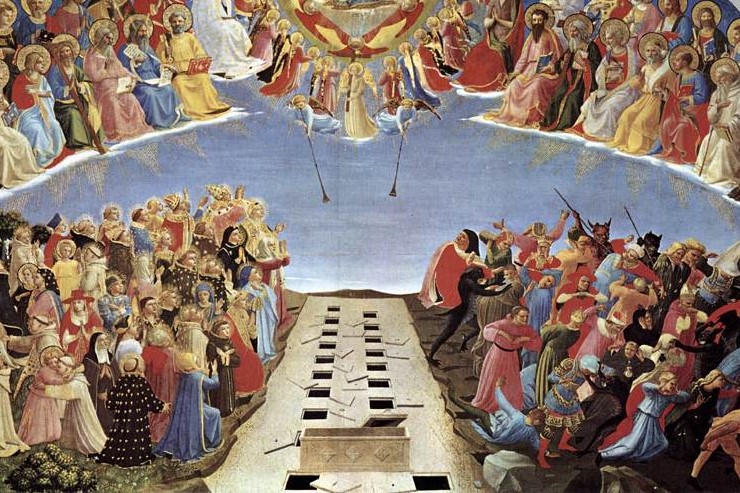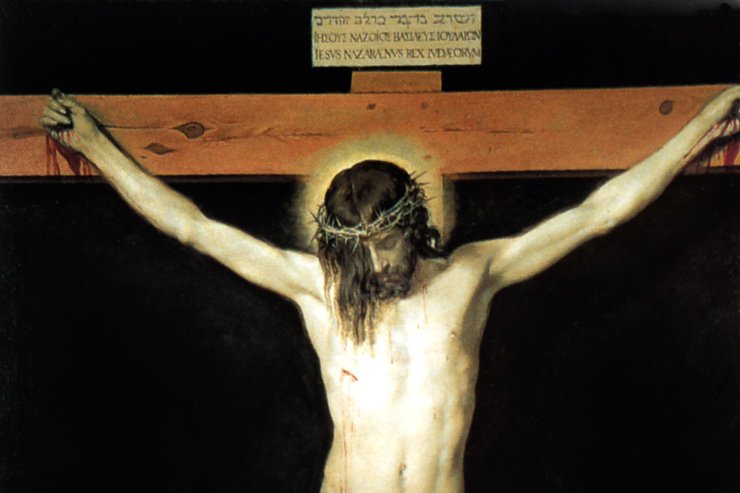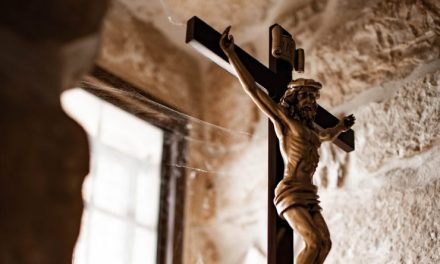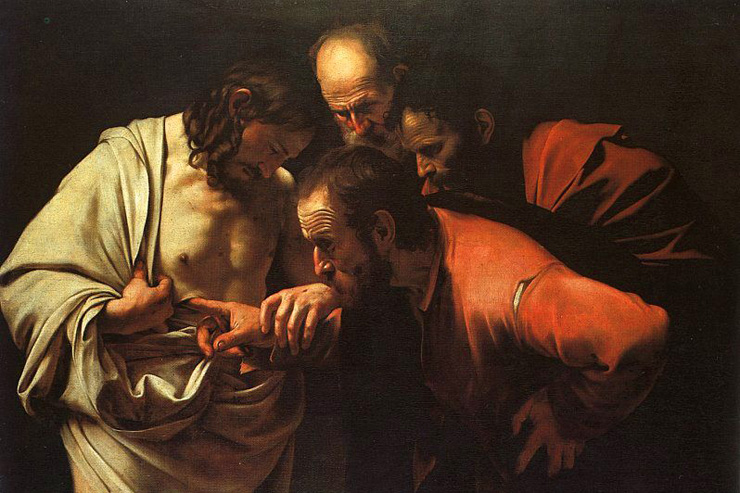Last week, the Italian Catholic church was given a shock—not because something miraculous happened, but because it didn’t happen. Three times a year, a reliquary holding the blood of San Gennaro, or Saint Januarius, is removed from the case where it is held, and in the hands of the abbot of the chapel, the dried blood in the vial turns to liquid. One of those days is his feast day, September 19. A few months ago, the miracle occurred, as everyone has become accustomed.
Another one of those days is December 16, the anniversary of St. Januarius’ intercession for the city of Naples against the eruption of Vesuvius in 1631. This time, the miracle did not occur. The blood remained dried in in the vial.
Why is this significant? Why does this lack of miracle shock the community more than the miracle would? The absence of the miracle is generally linked to the occurrence of a calamity. The Italian news service cited only a handful of times in the last century that the blood did not liquefy, such as 1939 and 1940 at the beginning of World War II and Italy’s entrance into the War, in 1973 when a cholera epidemic hit the city of Naples, and in 1980 when an earthquake in southern Italy killed almost 2,500 and left 250,000 homeless.
In response to the lack of miracle, Monsignor Vincenzo DeGregorio, the abbot of the shrine, reminded the people, “We must not think about disasters and calamities. We are men of faith, and we must continue to pray.”
Monsignor’s response is important. They are not just the words of a father trying to reassure his children. Rather, his words call us to respond to this event (or lack thereof). Why does this miracle happen? It’s strange, right? It’s one of those miracles that you might not mention to non-Catholics or proclaim on the first day of RCIA class. Some people find it fascinating, others find it completely bonkers. But why would God choose to perform this miracle … and choose not to?
It is not because He wants to tell us “I told you so!” when something bad happens. One of the reasons it seems that He has chosen to perform this particular miracle is to inspire us to prayer. Rather than sit around and wait for impending disaster, we should be spurred to conversion, prayer, and sacrifice.
I think it’s easy to fall into the trap of thinking that prayer doesn’t actually change things. We know we should pray, and we turn to prayer in times of distress, but deep down we might think that the future is predetermined and we can’t change it. Perhaps we turn to prayer to make us feel better… but change the future? Is that possible?
While it’s hard for us philosophically to wrap our minds around how prayer can change the future, the fact of the matter is that it does. One example of this is seen in the famous Third Secret of Fatima, which Pope Saint John Paul II believed referred to the assassination attempt on his life. While the Pope in the Third Secret died, John Paul II didn’t, and he believed it was due to prayer.
If we don’t believe prayer can change the future, we are resigning God to the role of clock-maker, who creates the world and sets it in motion, just to sit back and watch it all happen. Recent studies have shown that only sixty percent of people who believe in God believe in a personal God with whom they can have a relationship. Even more shocking, twenty-nine percent of Catholics say the God they believe in is an “impersonal force.”
This is not the God of Christianity. This is not the God of Christmas.
Christmas is about the fact that God chose to intervene in human history. Far from being an impersonal force, He is a personal God who wants to have a relationship with you. Christmas is the celebration that God chose to act in human history, and he chooses to act every day.
We have a God who loves us. But that love demands a response. He wants to act in our lives, but chooses to submit Himself to our freedom. Will we ask Him to act?
Do we ever treat the story of Christmas as if it’s a nice fable, a simple story about characters who didn’t really exist? Today, stop and think about the people in the story. The story of Christmas, this story that has perhaps become too familiar, is full of people asked to make a response.
These people were real people—people who could have said no. St. Joseph could have said no. The shepherds didn’t have to listen to the angels. They all faced choices- they could either act in faith or they could doubt and resist. Perhaps there were other shepherds who didn’t trust, who were suspicious, and who stayed in the field.
Let us be people who act in faith and prayer. Let us be reminded that there is a God who loves us. He doesn’t sit idly by while the world spins and calamities come and go. He is with us, and He wants to save us. But we must respond in faith, prayer, and trust.














